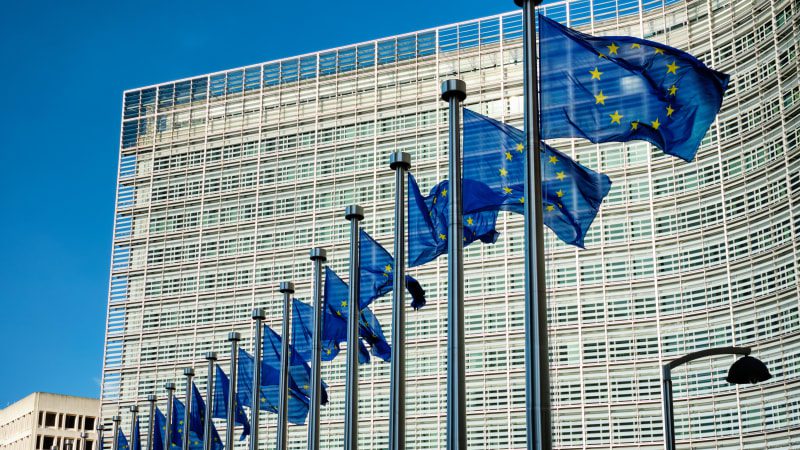EU clinches landmark ban on new internal-combustion cars by 2035

European Union countries have agreed to eliminate carbon emissions from new cars by 2035, effectively heralding the end of the era of the internal combustion engine.
Environment ministers struck a deal on the proposal after Italy, home to Ferrari NV and Automobili Lamborghini SpA, gave up demands for a five-year delay in the EU’s plan for automakers to clean up their fleet. Italian Ecological Transition Minister Roberto Cingolani told his counterparts earlier on Tuesday he was “satisfied” with a compromise proposed by Germany that could enable the use of carbon-neutral fuels after 2035.
The agreement defines member states’ negotiating stance for further talks with the EU Parliament and the European Commission on the final shape of the bloc’s so-called Fit for 55 landmark greenhouse gas-reduction package. With EU lawmakers already in favor of giving up fossil fuels in the auto industry, it’s highly likely that most car companies will have to shift to producing electric models in little more than a decade.
“I have full confidence that the European car industry can manage,” Frans Timmermans, the commission’s executive vice-president, told the ministers as the heated talks were drawing to a close around 2 a.m. in Brussels on Wednesday. “Our carmakers are among Europe’s industrial leaders and they can continue to be that as they embrace this global shift.”
As part of the package, governments also agreed to strengthen the EU Emissions Trading System and bolster its price-control mechanism. They also want to delay by a year a new carbon market for heating and road transport fuel and create a climate fund to help mitigate the costs of the new cap-and-trade program for the most vulnerable.
“Thanks to this agreement, Europe is putting itself at a leading position in terms of addressing climate challenges and technology,” said French Energy Transition Minister Agnes Pannier-Runacher. “We’re also ensuring a just transition for each member state, each territory and each citizen.”
Along with four other member states, Italy had sought a 90% reduction in carmakers’ emissions by 2035, the year that the European Commission has targeted a full cut, as well as a longer exemption for small automakers. It won some concessions on derogation for niche manufacturers — like Lamborghini — who will be spared interim targets until the end of 2035, from 2029 proposed by the commission, according to France.
In an attempt to enable a compromise, Germany proposed a non-binding addition to the car emissions law that calls on the commission to propose registering vehicles running exclusively on carbon-neutral fuels after 2035.
With no further details on the use of synthetic fuels, the deal by ministers in the EU Council leaves a lot of uncertainty for the automotive industry, according to Hildegard Mueller, head of Germany’s VDA car lobby.
“The agreement in the Council still provides for a de facto ban on combustion engines in 2035,” she said in an emailed statement. “Whether and to what extent climate-neutral combustion engines can be approved outside of the CO2 fleet regulation must now be clarified as soon as possible.”
The ministers also agreed to endorse the key parameters of a sweeping carbon market reform as proposed by the commission, including a 61% reduction of emissions in the cap-and-trade program by 2030 from 2005 levels. They want to strengthen a mechanism preventing excessive price spikes to curb speculation, and enable the release of 75 million carbon permits into the market. That would happen if the average auction price of allowances in six months is in excess of 2.5 time the average price of the two preceding years.
The deal also limits the size of the Social Climate Fund to 59 billion euros ($62 billion) from 72 billion euros proposed by the European Commission.



